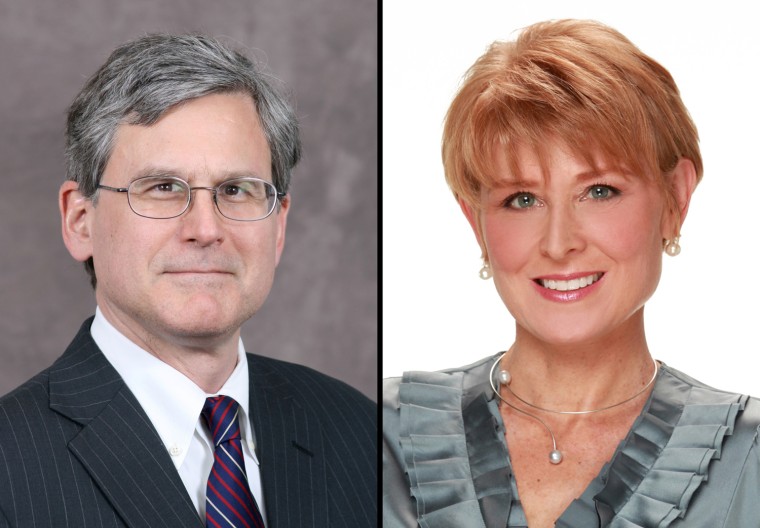Economic forecasters on msnbc.com's annual Economic Roundtable were generally accurate in predicting this year's painfully slow growth. But none were more accurate than two longtime members of the panel.
Ethan Harris of BofA Merrill Lynch and Diane Swonk of Mesirow Financial were rated the most accurate members of the panel by our measure, which rates forecasters according to how closely they predicted four major economic indicators.
Overall, the panelists did an excellent job of gazing into their crystal ball last year, especially on the issues of joblessness and interest rates, but Swonk and Harris easily surpassed the other nine members of our panel this year.
Both Harris and Swonk predicted a year ago that the jobless rate would end 2010 at 9.8 percent, exactly where it is currently. A year ago the rate was at 10 percent, and few of our panelists expected much improvement. The consensus among the forecasters a year ago was that the rate would drop only slightly to 9.8 percent, as it did.
"I think what happened in the past year is that you had two gigantic, opposing sets of forces that canceled each other out," said Harris.
The economy was boosted in 2010 by massive monetary and fiscal stimulus but was held back by the troubled housing market and the continued fallout from the financial meltdown that began in 2008, he said. As a result the economy experienced far slower growth than would be expected coming off such a deep recession.
While economists saw it coming, "from the point of view of policymakers it was a huge disappointment," Harris said. "Both the Fed and the Obama administration were looking for a much better result."
Harris also correctly anticipated that the Federal Reserve would leave the overnight federal funds rate at the unprecedented level of zero to 0.25 percent, where it has been since December 2008, shortly after the financial meltdown began.
Most of our forecasters, including Swonk, wrongly predicted the Fed would have begun tightening credit again by now. But looking forward, at least half our forecasters now expect the Fed to leave short-term rates unchanged through the end of 2011.
None of our forecasters predicted the extent of the extremely low inflation environment experienced over the past year. On average analysts expected a 1.4 percent gain in consumer prices excluding the volatile food and energy categories. In fact, prices other than food and energy have risen only 0.8 percent over the past 12 months.
Overall consumer prices have risen 1.1 percent, according to government figures released this week.
Both Swonk and Harris predicted a year ago that the economy would expand in 2010 at the relatively modest rate of about 3 percent, a little higher than most analysts we surveyed. Currently analysts expect the final GDP figures for 2010 to show growth of 2.8 or 2.9 percent, according to Randell Moore of Blue Chip Economic Indicators.
Here is the complete list of the members of our ninth annual roundtable, and their forecasts for 2011:
- Nariman Behravesh, chief economist, IHS Global Insight
- Michael Englund, chief economist, Action Economics
- Ethan Harris, head of developed markets economics, BofA Merrill Lynch
- Jan Hatzius, chief U.S. economist, Goldman Sachs
- Ed Leamer, director, UCLA Anderson Forecast
- Dean Maki, head of U.S. economics research, Barclays Capital Research
- Joel Naroff, president, Naroff Economic Advisors
- David Rosenberg, chief economist, Gluskin Sheff (rejoins panel)
- John Silvia, chief economist, Wells Fargo
- Neal Soss, chief economist, Credit Suisse
- Diane Swonk, chief economist, Mesirow Financial
- Lawrence Yun, chief economist, National Association of Realtors
